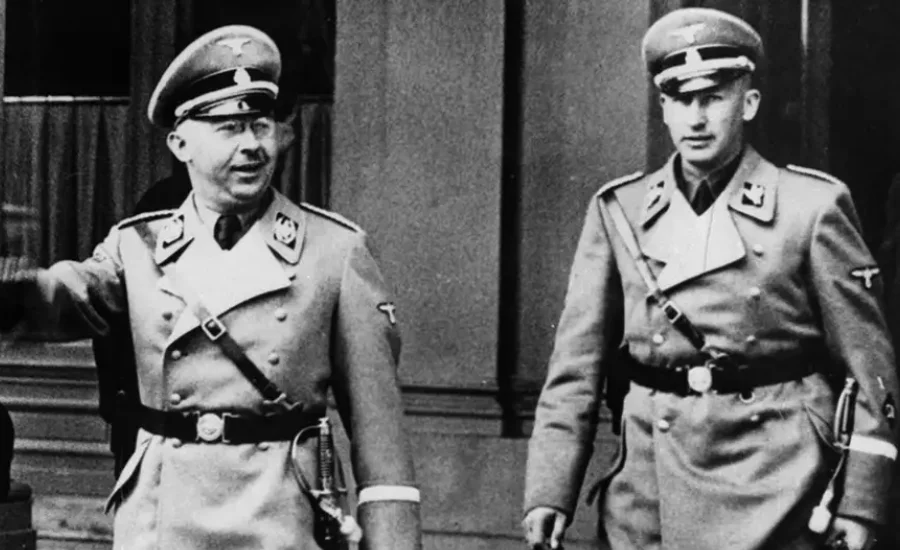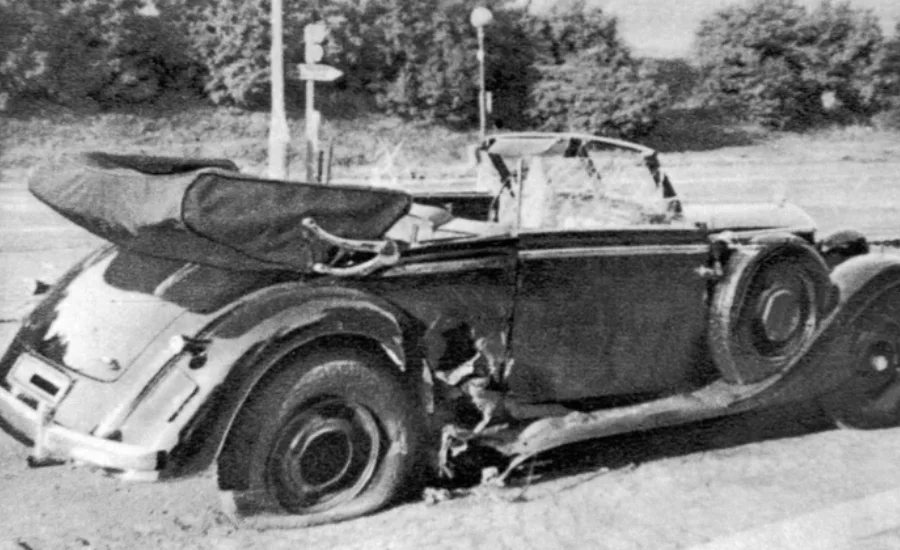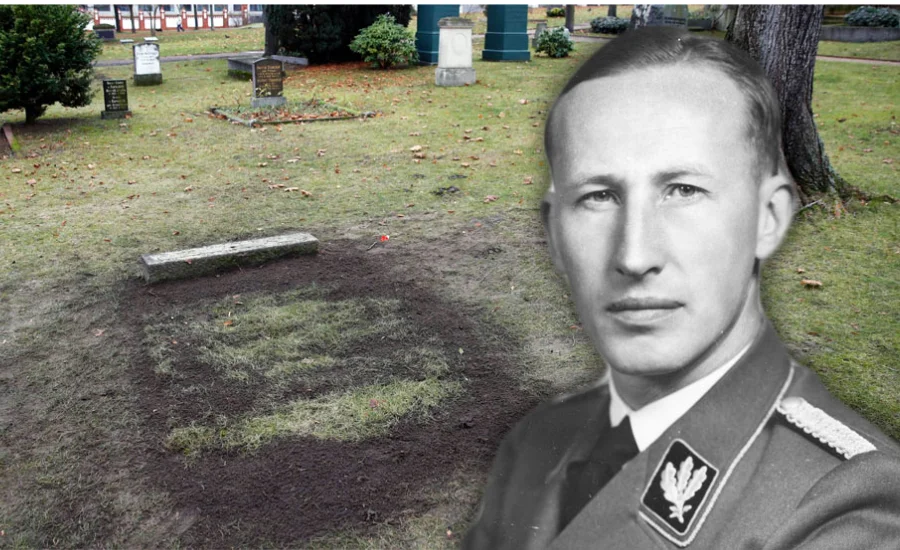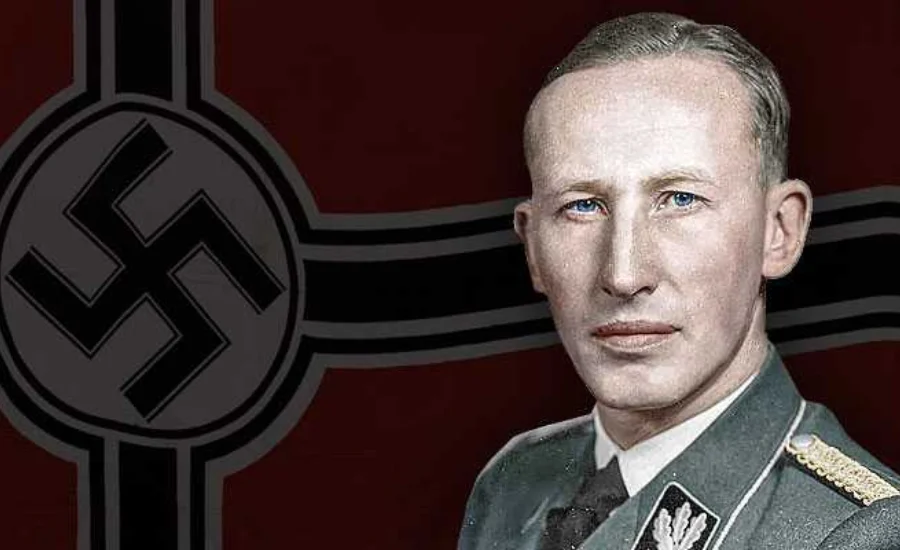Reinhard Heydrich Isot’d Into Robb Stark I, a world where Reinhard Heydrich, one of the most notorious leaders of the Nazi regime, finds himself in the role of Robb Stark from the beloved fantasy series Game of Thrones. This alternative history concept challenges us to merge real-life figures with fictional narratives, prompting us to reconsider the moral landscape of both history and fantasy.
In this intriguing scenario, we delve into how Heydrich’s chilling personality and ruthless political strategies would reshape the Stark storyline. Unlike Robb Stark, who is characterized by his sense of honor, duty, and loyalty to his family, Heydrich’s cold pragmatism and authoritarian mindset would introduce a stark contrast to the values typically upheld in Westeros.
Under Heydrich’s influence, the North could become a place where fear and manipulation replace the noble ideals of justice and honor. Decisions would likely be made with a focus on power and control, potentially leading to alliances built on treachery rather than loyalty. This shift would not only alter the dynamics between the Stark family and their allies but also reshape the conflicts that arise throughout the series.
The Intriguing Fusion of Reinhard Heydrich Isot’d Into Robb Stark I
The concept of “Reinhard Heydrich Isot’d into Robb Stark” presents a compelling fictional scenario in which the infamous Nazi leader Reinhard Heydrich is imagined as the character of Robb Stark from Game of Thrones. This narrative device, known as “ISOT” (Insertion of a character in Time or Space), creates a unique blend of two contrasting personas, merging Heydrich’s ruthless efficiency with Robb’s inherent sense of honor and justice.
In this alternative universe, Heydrich’s strategic acumen and leadership style, honed during World War II, would intersect with Robb Stark’s commitment to loyalty and justice for the North. The result is a character that retains some of Robb’s noble qualities but is likely to be more calculating and emotionally detached. This combination raises important questions about leadership in times of conflict: how do different values influence decision-making, and what does it truly mean to lead?
This thought experiment encourages us to reflect on the complexities of moral choices in leadership roles. By examining the attributes of a historical figure like Heydrich within the context of a beloved fictional world, we can explore the broader implications of power, loyalty, and the ethics of leadership during warfare. Ultimately, this imaginative scenario serves as a lens through which we can better understand the profound impact of individual character traits on the dynamics of conflict and governance.
The Hypothetical Transformation of Reinhard Heydrich into Robb Stark

Reinhard Heydrich, notorious for his ruthless efficiency during World War II, played a pivotal role in orchestrating the Holocaust and was a key figure in the Nazi regime. Imagining him as Robb Stark, the honorable leader of the North in Game of Thrones, presents a striking alternative history. This intriguing blend of two characters—a brutal historical figure and a noble fictional hero—creates a complex and potentially dangerous leader.
If Heydrich were to embody Robb Stark, we could expect a stark departure from the traditional King in the North. This version would likely prioritize strategic ruthlessness over the values of forgiveness and mercy that Robb is known for. His approach to alliances and warfare would be shaped by a focus on achieving goals through force, transforming him into a formidable, yet possibly resented, leader.
This shift raises compelling questions about the nature of leadership and the consequences of employing harsh tactics in a world where loyalty and honor are paramount. Would a Heydrich-inspired Robb Stark be able to secure victory in the brutal conflicts of Westeros, or would his lack of compassion ultimately lead to his undoing? Exploring this scenario not only illuminates the dynamics of power and authority but also invites us to reflect on the moral complexities inherent in leadership during tumultuous times.
Rethinking the Red Wedding: Heydrich as Robb Stark
The Red Wedding stands out as one of the most shocking events in Game of Thrones, marked by the brutal betrayal and murder of Robb Stark and his family. Imagining Reinhard Heydrich in Robb’s position introduces a fascinating alternative history: could his strategic mindset and foresight have altered the course of this tragic event?
Known for his intelligence and keen ability to anticipate threats, Heydrich as Robb Stark might have approached his dealings with the Freys and Boltons with a heightened sense of caution. Instead of trusting his hosts, he could have reinforced his alliances, recognizing the precariousness of his position. This strategic shift might have enabled him to prepare for potential treachery, perhaps even averting the massacre that shocked fans and characters alike.
This reimagining invites us to explore how the story of Robb Stark could have unfolded differently under the influence of a character like Heydrich. By examining the impact of strategic thinking and leadership on pivotal moments in history and fiction, we gain a deeper understanding of the delicate balance between trust and caution in a world rife with betrayal. Ultimately, this scenario enriches our appreciation of both the narrative and the complexities of human decision-making in times of conflict.
The Transformative Power of Reinhard Heydrich as Robb Stark
One of the most compelling aspects of envisioning Reinhard Heydrich as Robb Stark is his extraordinary ability: “Turn Waste into Treasure.” This supernatural gift enables him to elevate any resource within his realm, transforming abandoned fortresses, neglected supplies, or even estranged allies into valuable assets.
In the harsh and unpredictable world of Westeros, where resources are limited and betrayal lurks around every corner, this ability becomes a game changer. As Robb Stark’s kingdom grapples with turmoil and loss, Reinhard Heydrich’s power allows him to convert crumbling castles into formidable strongholds, refurbish outdated weapons into formidable arms, and leverage seemingly inconsequential information into crucial political advantages.
This remarkable talent, combined with his strategic acumen, positions him several steps ahead of his enemies. It not only enhances his military capabilities but also reshapes the dynamics of power within Westeros, illustrating how ingenuity and resourcefulness can prevail even in the face of overwhelming adversity. By harnessing this unique ability, Heydrich as Robb Stark emerges as a formidable leader, adept at navigating the complexities of war and alliances in a world fraught with danger.
Exploring the Transformation of Reinhard Heydrich into Robb Stark

In the realm of storytelling, transformations often serve as powerful metaphors, reflecting characters’ internal struggles and growth. But what if we could merge history and fiction in a striking crossover? This article examines the fascinating concept of Reinhard Heydrich isot’d into Robb Stark, illuminating how this literal and metaphorical transformation resonates with audiences while offering profound symbolism. By bridging the divide between a historical figure and a fictional character, we can uncover layers of power, morality, and legacy.
To fully appreciate the transformation of Heydrich into Robb Stark, it is essential to grasp the historical context surrounding Reinhard Heydrich. A prominent and feared figure during World War II, he is often remembered as one of the chief architects of the Holocaust. His cold, calculating demeanor and ruthless ambition positioned him among the most notorious members of the Nazi regime. The legacy he left behind is one of terror, deeply impacting history and leaving an indelible mark on humanity.
In this imagined transformation, Heydrich’s traits of ruthlessness and unwavering loyalty to a dark cause contrast sharply with Robb Stark’s honorable journey. This juxtaposition not only underscores the complexities of power and betrayal but also highlights the inevitability of tragedy that permeates both historical and literary narratives. By exploring this intersection, we gain insight into the themes that shape our understanding of leadership, morality, and the consequences of ambition. This exploration invites readers to reflect on the delicate balance between honor and treachery in both history and fiction, enriching our appreciation of the characters and the stories they inhabit.
The Ethical Dilemma of Reinhard Heydrich as Robb Stark
The fusion of Reinhard Heydrich Isot’d Into Robb Stark I Heydrich and Robb Stark creates a leader of remarkable complexity, but it also prompts profound ethical and moral inquiries. Heydrich, a historical figure notorious for his role as a principal architect of the Holocaust, acted from a foundation of hatred and brutality. In contrast, Robb Stark embodies loyalty, a strong moral compass, and a commitment to justice. This stark contrast between their motivations brings forth a compelling conflict in the concept of Reinhard Heydrich isot’d into Robb Stark.
In this alternate narrative, Heydrich must grapple with his internal contradictions as he navigates the responsibilities of leadership in the North. His ambition for power clashes with the honor and duty that define Stark’s legacy. Although his followers remain loyal due to Robb Stark’s esteemed reputation, the influence of Heydrich’s ruthless mindset urges him toward morally questionable decisions.
Exploring Moral Ambiguity through the Fusion of Reinhard Heydrich Isot’d Into Robb Stark I

The intriguing concept of Reinhard Heydrich isot’d into Robb Stark delves deep into the complexities of moral ambiguity. Heydrich, as a prominent figure in Nazi Germany, embodies the darkest aspects of humanity, while Robb Stark represents the tragic journey of a well-intentioned hero who faces an inevitable downfall. This combination compels audiences to confront the nuanced shades of morality, challenging traditional perceptions of justice and righteousness.
By merging a figure as malevolent as Heydrich with the honorable Stark, the narrative poses essential questions: Does this fusion create a skewed representation of justice? Or does it highlight the vulnerability of even the noblest intentions when confronted with external pressures and internal failings? Through the lens of Reinhard Heydrich isot’d into Robb Stark, we are encouraged to explore the often-blurred lines between good and evil, revealing how these forces manifest in both historical and fictional contexts.
Furthermore, this crossover prompts a broader reflection on how narratives—whether rooted in history or born from imagination—shape our understanding of societal values and human behavior. While Heydrich’s historical legacy is firmly established, storytelling allows us to reexamine his character in innovative and provocative ways. Similarly, Robb Stark’s virtues are put to the test as he stands in contrast to a figure like Heydrich, merging the weight of historical reality with the ethical dilemmas of fantasy. This interplay invites us to reassess our definitions of heroism and villainy, emphasizing the intricate line that separates these concepts and how they influence our perceptions of both historical events and the narratives we create.
Examining the Hypothetical Scenario of Reinhard Heydrich Isot’d Into Robb Stark I
This article delves into the fascinating hypothetical scenario of Reinhard Heydrich, a notorious figure in Nazi Germany, being inserted into the realm of Westeros as the young Wolf Lord, Robb Stark of Winterfell. Through this exploration, we analyze the far-reaching consequences of such a dramatic shift in historical context, considering its political, social, and personal ramifications.
The concept of inserting Reinhard Heydrich into Robb Stark’s role serves as a thought-provoking exercise that prompts us to contemplate the complexities of history and identity. It raises significant questions about the nature of leadership, the repercussions of our choices, and the moral implications of rewriting historical narratives.
While this notion remains purely speculative, it serves as a valuable tool for expanding our imagination and understanding the delicate nature of historical events. By investigating the potential outcomes of this radical alteration, we can cultivate a deeper appreciation for the intricate tapestry of history and recognize the importance of safeguarding it.
We encourage readers to engage with this concept and share their thoughts on the implications of Reinhard Heydrich taking Robb Stark’s place. How do you envision the narrative unfolding under Heydrich’s influence? What alterations might have occurred in the course of history as a result of this intriguing crossover?
Final Words
In exploring the hypothetical scenario of Reinhard Heydrich being inserted into the world of Westeros as Robb Stark, we uncover profound questions about morality, power, and identity. This intriguing fusion of history and fiction challenges us to reflect on the complexities of leadership and the consequences of our actions. While Heydrich’s ruthless ambition contrasts sharply with Robb’s honorable intentions, their combined narrative invites a deeper understanding of the fragile balance between good and evil.
Ultimately, this thought experiment encourages us to examine the blurred lines between heroism and villainy, allowing for rich discussions on the nature of justice and the impact of historical figures on our collective memory. As we ponder the alternate paths history could take, we gain a renewed appreciation for the stories that shape our perceptions and the ethical dilemmas that arise when we alter the past.
We invite you to share your insights and interpretations of this fascinating scenario, contributing to the ongoing dialogue about the intricate relationship between history, morality, and storytelling.
For more information and updates join us on Twinkle Crest.




